How Mobile Apps are Transforming the Travel and Tourism Industry
June 22, 2022
Booking hotels, flights, and local activities are becoming easier, more comfortable, and more exciting thanks to mobile apps, which are transforming the travel and tourism industry.
Introduction
The travel and tourism industry is a massive global industry that encompasses all aspects of travel, including transportation, accommodation, food and beverage, and recreation. It is one of the largest and fastest-growing industries in the world and has a significant impact on the global economy. With the advent of technology, the travel and tourism industry has seen massive growth and transformation, making travel easier and more accessible.
This blog aims to explore the impact of mobile apps on the travel and tourism industry and how they are transforming the way we travel. We will look at the benefits of using mobile apps for travel, the challenges faced by the industry in adopting mobile apps, and some real-life examples of how mobile apps are changing the travel and tourism industry. So buckle up and join us on a journey to discover the wonders of mobile apps in the travel and tourism industry.
Table of Contents
Here Is Why Travel Apps Have Become So Popular
The Rise Of Travel Apps
Smartphones and tablets have revolutionized travel and contributed to the popularity of travel apps. With more affordable options for these devices becoming available, people are increasingly turning to travel apps to meet all their travel needs. Gone are the days of calling brick-and-mortar travel agencies, flipping through guidebooks, or using a compass to navigate a new place. Instead, travelers can now access the latest information and services through their mobile devices, no matter where they are.
Improving the Travel Experience
Travel apps have become an indispensable tool for many travelers, offering a convenient way to book online tickets and hotels, find local attractions, and even share their travel experiences with others. With these apps, travelers can research their destination, get recommendations on local food and activities, and access information about buildings and monuments in a fun and engaging way. Some travel apps, such as Wikitude, even use augmented reality to overlay information and images onto the user’s camera view, providing an immersive experience.
The Marketing Power Of Apps
Apps have become a powerful marketing tool for travel companies looking to stand out in a competitive market. By embracing the SoLoMo trend of utilizing social, local, and mobile platforms, companies can increase their visibility and reach, leading to a higher return on investment (ROI). Apps like Groupon and Foursquare show how businesses can leverage social media to reach new audiences and build brand loyalty. With the ability to reach millions of users with a single click, travel companies can stay ahead of the curve and keep their competitive edge.
Expanding The Customer Base And Foster Loyalty
Travel companies can use apps to attract new customers by offering special promotions and discounts, such as first-time user discounts, seasonal deals, and cost-effective holiday packages. Offering loyalty programs and discounts on future bookings to repeat customers will keep them coming back and increase overall revenue. By providing a convenient and user-friendly platform, travel companies can use apps to reach new customers and nurture loyalty and ensure repeat business.
24/7 Direct Connection to Users Worldwide
Mobile apps provide a direct and constant channel for travel companies to connect with their users, even before, during, and after their travels. By analyzing user behavior and preferences through the app, companies can gain valuable insights into their customer’s needs and preferences and offer tailored holiday packages that meet their specific budgets and requirements. This information can also inform future marketing campaigns and help companies build a closer relationship with their customers. TripAdvisor is an excellent example of this approach, providing travelers with trusted information and feedback.
Streamlining Transactions & Reducing Costs
The use of mobile apps can streamline transactions and reduce paperwork, making the process of traveling more efficient and convenient. By storing electronic versions of travel documents, invoices, receipts, and tickets, businesses, and customers can reduce their reliance on paper and cut down on time and resources spent on administrative tasks. This saves time and money and provides peace of mind knowing that all important travel information is accessible from your phone or tablet.
Mobile Apps Bring The Travel World Right To Your Fingertips
Having a travel app on your phone means you have the world of travel at your fingertips. No more lugging around heavy guidebooks and maps. You can get maps, directions, and even last-minute route changes to unfamiliar destinations with geolocation-enabled services such as Google Maps and GPS. The latest and greatest invention in travel technology is wearable apps like the Triposo travel belt. Using Wi-Fi or Bluetooth, you can link your smartphone to this handy device to find all the tourist attractions you should not miss. Not only that, some travel apps even offer a real-time view of the destinations you are browsing and the accommodations available there. Through Airbnb’s videos and pictures, you can review rentals and homestays anywhere in the world using its booking site.
Why Are Mobile Apps The Go-to Option For Travel?
- Fly High And Rest Easy: Mobile apps allow you to check and book flight tickets and hotels with a few taps. No more waiting in long lines or navigating through confusing websites!
- Trip Planner Extraordinaire: With travel apps, you can arrange accommodations, plan out activities and sightseeing tours, and even book travel packages across multiple destinations, all from your fingertips.
- Never Get Lost In The Sauce: These apps come equipped with tools that help you find nearby restaurants, hospitals, banks, and other essential services, ensuring a smooth and stress-free trip.
- One-stop Shop: From organizing your itinerary to booking activities and hotels, mobile apps have covered you. No more jumping from website to website; everything is just a tap away.
- Convenience On The Go: Whether you’re commuting, on a layover, or just lounging at home, mobile apps make it possible to plan and book your next trip with ease.
Examples of Mobile Apps Transforming the Travel and Tourism Industry
Booking & Accommodation Apps
Airbnb

This app has revolutionized the way we book accommodations while traveling. With a vast network of properties ranging from apartments to entire homes, Airbnb offers travelers the option to stay in unique and comfortable spaces. It allows travelers to choose their accommodations and location based on their preferences and budget.
Booking.com
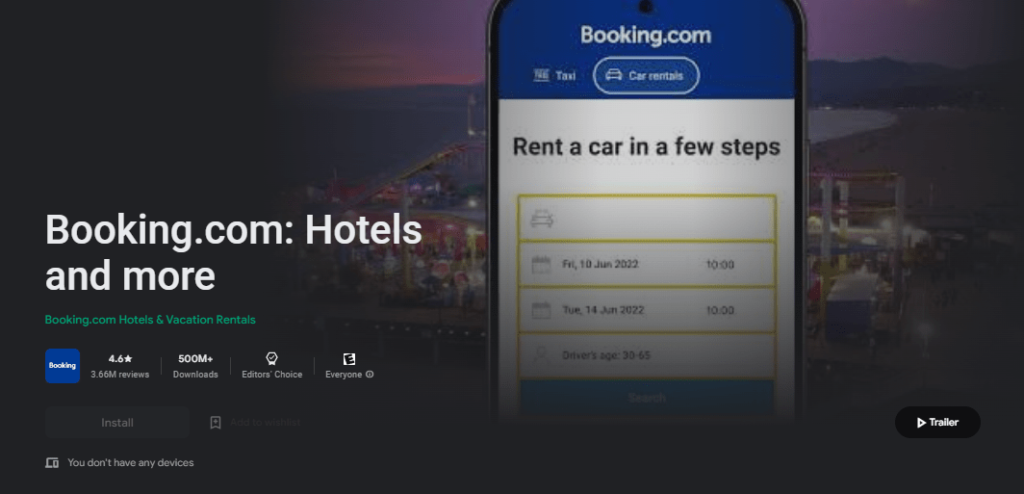
This app has made it easy to find and book the perfect hotel, resort, or vacation rental. With a wide range of properties, Booking.com allows travelers to compare prices and select the best deal. From luxury to budget-friendly, Booking.com caters to all kinds of travelers, making it a go-to app for accommodation needs.
Transportation and Navigation Apps
Uber
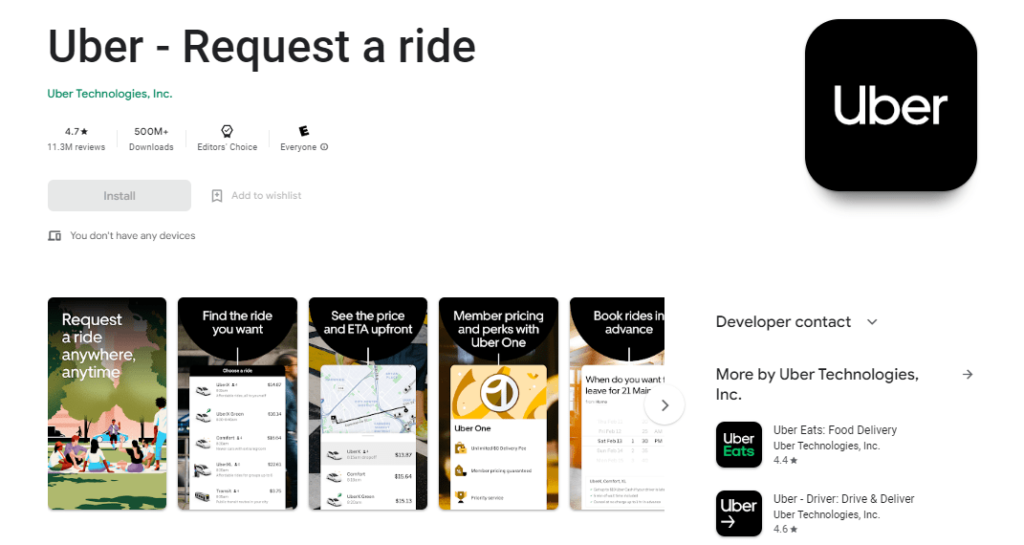
This app has changed the way we travel from one place to another. With the touch of a button, travelers can book a ride from the comfort of their homes or hotel. Uber has become the go-to mode of transportation for millions of people worldwide, making it a must-have app for anyone traveling.
Google Maps
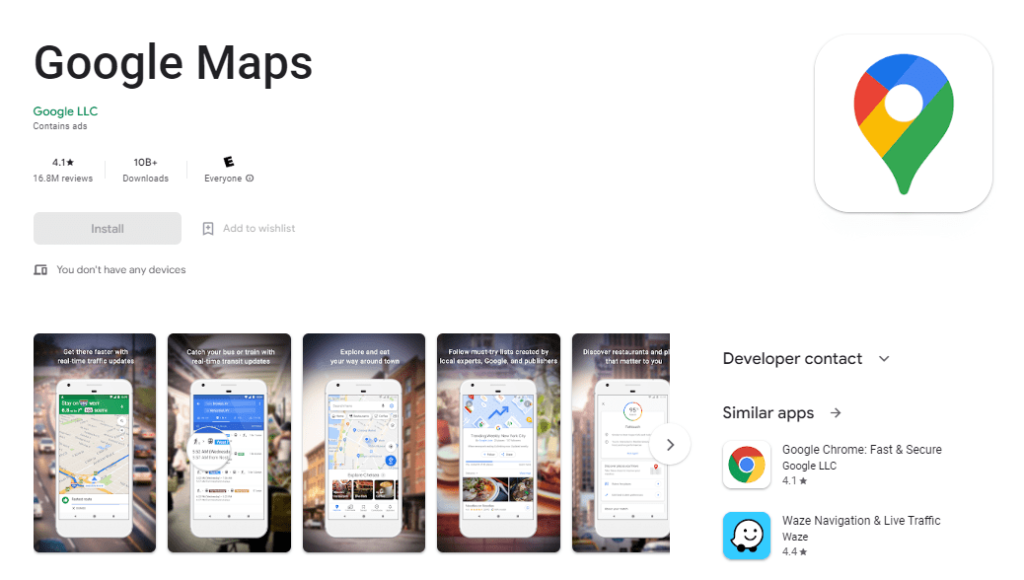
This app has revolutionized the way we navigate new places. With its accurate turn-by-turn directions and real-time traffic updates, Google Maps has made it easy for travelers to reach their destination without getting lost. It’s a lifesaver for those new to a city or country, providing them with the information they need to get around quickly.
Travel Planning and Experience Apps
TripAdvisor
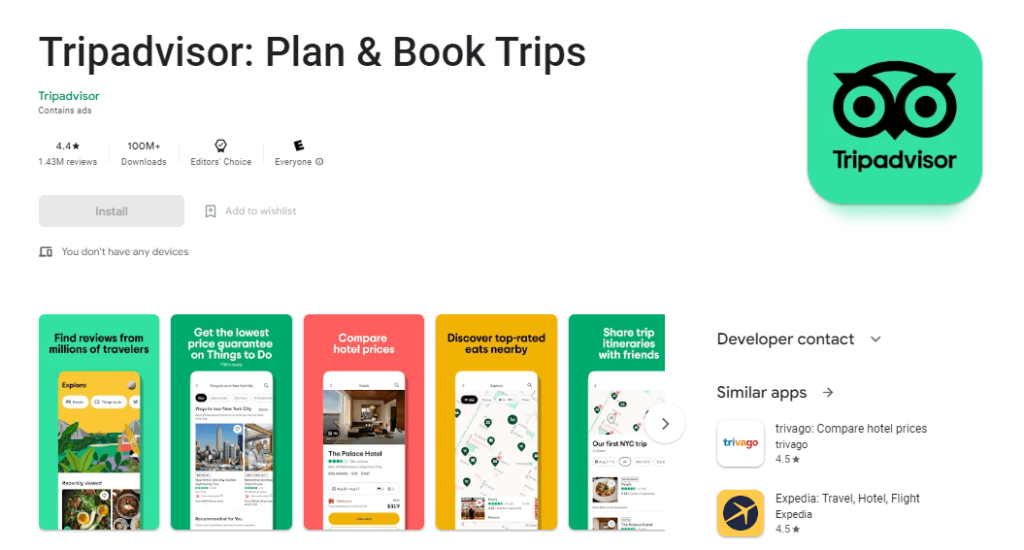
This app has made it easier for travelers to plan and experience their trips. With its vast database of travel information and user reviews, TripAdvisor provides travelers with the insights they need to make informed decisions about their travel plans. From finding the best restaurants to the must-visit tourist attractions, TripAdvisor has everything travelers need to make their trip memorable.
Hopper
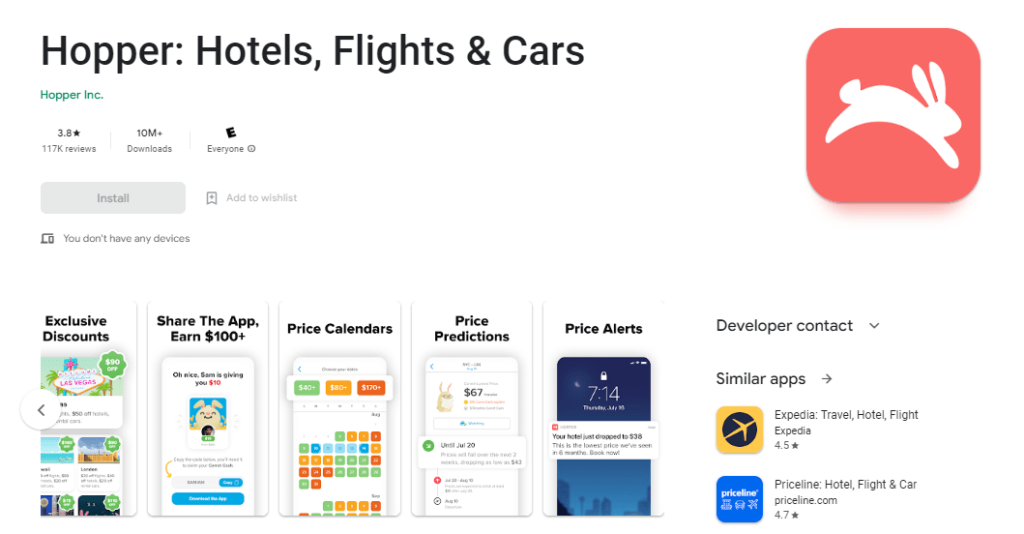
This app is a game-changer for budget-conscious travelers. Hopper uses sophisticated algorithms to predict the prices of flights and helps travelers find the best deals. With Hopper, travelers can save money on their trips and experience more for less. Hopper makes travel more affordable and convenient, from planning to booking.
Challenges Faced By The Travel & Tourism Industry In Adopting Mobile Apps
Data Privacy and Security Concerns
One of the major challenges the travel and tourism industry faces in adopting mobile apps is the concern for data privacy and security. With the increasing number of hackers and cyber attacks, it becomes imperative for travel companies to ensure that their customer’s sensitive information is protected. Companies must take proper measures to prevent unauthorized access, data theft, and cyber-attacks.
Integration with Traditional Systems
Another challenge is integrating mobile apps with traditional systems. Many travel and tourism companies still rely on legacy systems that may not be compatible with modern technology. This makes it difficult for them to adopt mobile apps smoothly, and there can be technical glitches in integrating the two systems.
Competition From Established Players
The travel and tourism industry is highly competitive, and established players have been in the market for a long time. These established players have a vast customer base and already have their own mobile apps offering various services. It is difficult for new entrants to compete with established players, as they already have a solid online presence. To overcome this challenge, new entrants need to find unique ways to differentiate themselves from the established players and provide customers with value-added services that the established players do not offer.
Get Your Travel App Idea Rolling with ultroNeous
After covid-19 pandemic, people are eager to return to the road domestically and internationally. However, how people use travel services has changed dramatically, with a growing number of bookings and plans being made online. Everything is done through the digital medium, from ordering tickets and cabs to booking hotels and exchanging currency.
For businesses providing services to the tourism industry, having a strong web presence and a mobile app is no longer a luxury but a necessity. This is where ultroNeous comes in, understanding the needs of travelers who want to stay connected to their habits and routines while on the road. Contact us, and we will be the perfect partner for you to develop a travel app that meets your customers’ needs and maximize your profits.🚀

Recent Post
Recommended Blogs
Let’s Discuss your Ideas.
Contact usJoin our Team
Go to CareerOur Offices
INDIA
B 401-402, Shilp Corporate Park, Rajpath Rangoli Rd, Thaltej, Ahmedabad, Gujarat 380054
CANADA
1932 50 Ave SW,Calgary, AB T2T 2W2, Canada
Hire a Team
NextJS DeveloperVueJS DeveloperAngularJS DeveloperReactJS DeveloperNodeJS DeveloperKotlin DeveloperPython DeveloperMEAN Stack DeveloperRuby on Rails DeveloperFlutter Developer© 2025 ultroNeous. All Rights Reserved.